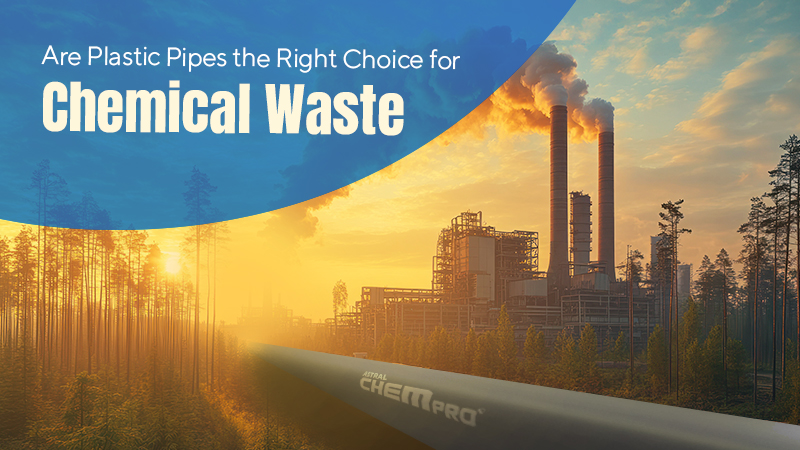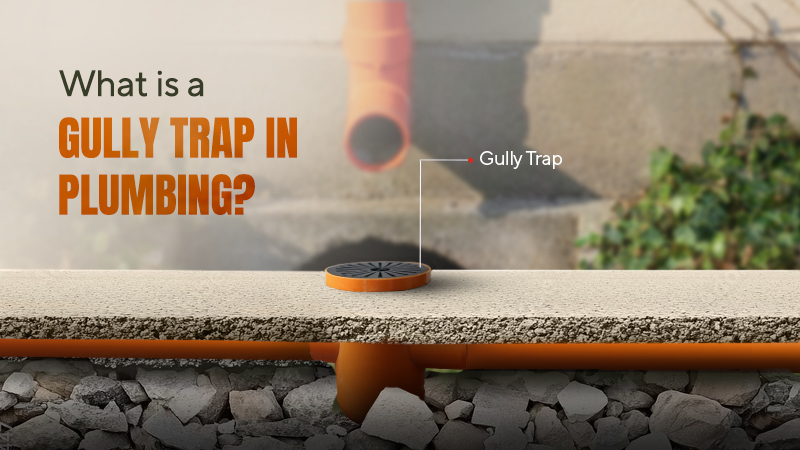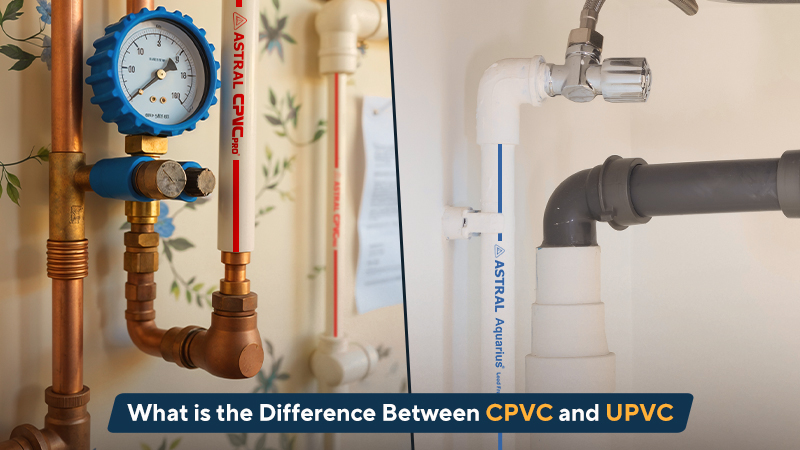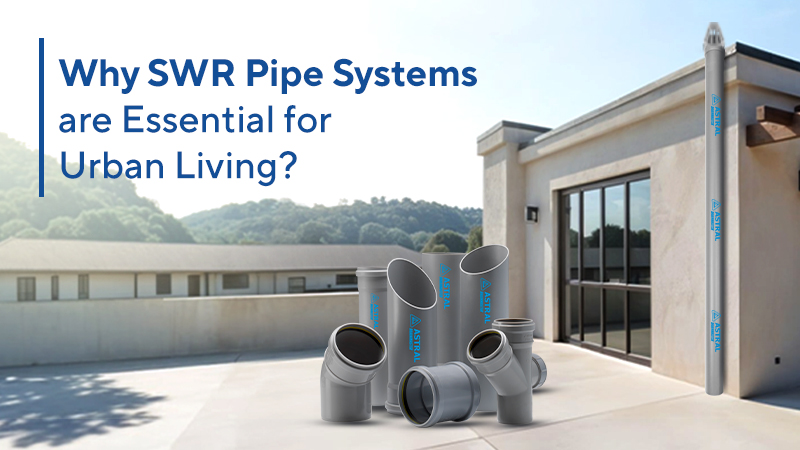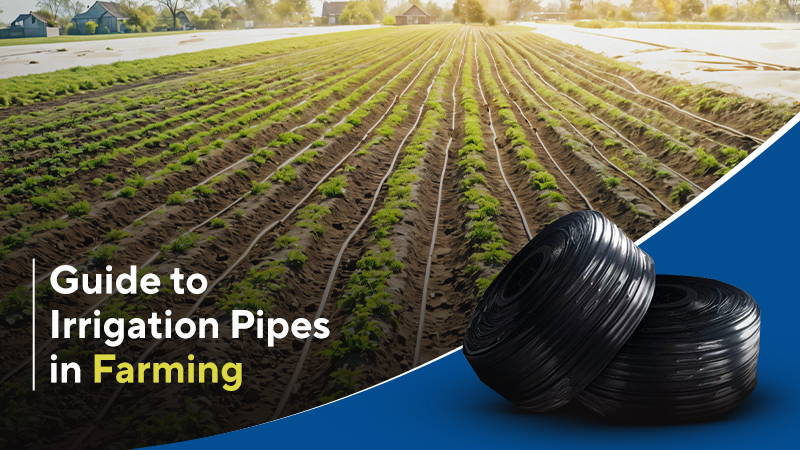
21 Jul 2025
Guide to Irrigation Pipes for Farming
Choosing the right irrigation pipe is key to successful farming. From drip irrigation to strong agricultural pipes, the right system affects how much crop you get, how well you save water and how profitable your farm will be. With water becoming limited and farming costs going up, farmers need piping that saves water and helps crops grow better.
This guide explains what is irrigation pipe, its main types, benefits and tips to pick the best one for your farm.
What is Irrigation Pipe?
Irrigation pipe carry water efficiently from their source to crops. These pipes are stronger than regular household pipes because they must handle outdoor weather, different water pressures and farming chemicals. They control water flow carefully, so your plants get just the right amount of water. This reduces waste and spreads water evenly across your fields, helping your crops grow healthier and yield more.
Types of Irrigation Pipes
Understanding the various types of irrigation pipes helps make informed decisions for specific agricultural needs:
1. PVC Pipes
These popular irrigation pipes offer excellent strength-to-weight ratios and corrosion resistance. They are lightweight, easy to install and perfect for drip and sprinkler systems handling moderate water pressure.
2. HDPE Pipes
Made from high-density polyethylene, this flexible agriculture pipe resists UV rays and chemicals excellently. They’re ideal for uneven terrain and long-distance water transport applications.
3. Polyethylene Pipes
Generally used for low-pressure irrigation setups, these flexible pipes are easy to install and perfect for drip irrigation systems where precision matters most.
Each type amongst these types of irrigation pipes offers unique advantages, so your choice should align with your farm size, water source characteristics, terrain challenges and preferred irrigation methodology.
Benefits of Using Irrigation Pipes
Implementing quality irrigation pipes brings numerous advantages to farming:
1. Enhanced Water Efficiency: Proper agricultural pipes deliver water directly to root zones, reducing the loss of evaporation and surface runoff that wastes water.
2. Significant Cost Savings: Controlled water usage through efficient pipes means reduced wastage, leading to optimised resource utilisation for long-term financial benefits.
3. Improved Crop Health: Reliable irrigation pipes provide steady watering, helping crops grow evenly and lowering the chance of diseases caused by irregular watering.
4. Reduced Labour Requirements: Automated irrigation systems using quality agriculture pipe minimise manual watering efforts.
5. System Flexibility: Different types of irrigation pipes accommodate varied farming requirements, whether you are implementing drip, sprinkler or surface irrigation methods.
How to Buy the Right Irrigation Pipe for Your Farm?
Selecting appropriate irrigation pipes requires careful consideration of several factors:
Step 1: Assess Your Water Source
Evaluate your water supply’s pressure and availability. High-pressure systems work well with HDPE agriculture pipes, while low-pressure applications suit polyethylene options perfectly.
Step 2: Determine Your Irrigation Method
Drip irrigation requires flexible, smaller-diameter irrigation pipes, whereas sprinkler systems need sturdy, pressure-resistant pipes that handle higher flow rates effectively.
Step 3: Consider Farm Characteristics
Larger farms with uneven terrain benefit from flexible HDPE agriculture pipes, while smaller, relatively flat fields often manage efficiently with standard PVC irrigation pipes.
Step 4: Evaluate Durability Requirements
Choose irrigation pipes that resist UV radiation, agricultural chemicals and general wear to avoid frequent, costly replacements that disrupt farming operations.
Step 4: Balance Budget Considerations
Various types of irrigation pipes are available across different price ranges. Balance initial costs with long-term performance expectations.
Step 5: Choose Reputable Brands
Opt for trusted manufacturers like Astral Pipes, which provide reliable, thoroughly tested pipes backed by comprehensive service support and warranty coverage.
Step 6: Consider Future Expansion
Select an agriculture pipe that accommodates potential farm expansion or irrigation system upgrades without requiring complete infrastructure replacement.
Understanding various types of irrigation pipes and matching them with your farm’s specific requirements enables well-informed decisions supporting sustainable, profitable farming practices. Astral Pipes offers durable, high-quality agriculture pipes specifically designed to meet Indian agriculture’s demanding requirements.
Astral’s Agriculture Pipes and Fittings
At Astral Pipes, we offer various types of irrigation pipes to help farmers make informed decisions for their specific agricultural needs:
1. Aquasafe System
These agriculture pipes range from 20mm to 400mm, featuring high flow rates and exceptional durability. They also resist UV rays and chemicals, making them ideal for long-distance water transport applications.
2. Droplet Drip Irrigation Pipe
We have specially designed these irrigation pipes for precision farming, perfect for low-pressure irrigation setups where accuracy matters most. These flexible pipes are easy to install and deliver water directly to root zones.
3. Borewell Solutions
Our Borewell and Casewell pipes provide robust solutions for deep water extraction, engineered to handle extreme pressure and harsh underground conditions.
Each type of our irrigation pipes has its benefits. We help you pick the right one based on your farm size, water source, terrain and irrigation method. Choose agriculture pipes wisely for irrigation infrastructure and experience the transformative benefits of efficient water management for your farming.


